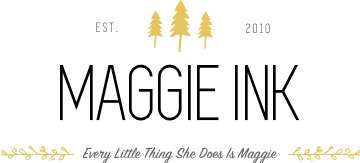I lost my balance in Dahab, Egypt.
Physically, I mean.
I was staying at the amazing El Salam Camp and Yoga Shala. During marathon late-night yoga sessions, in an idyllic setting where night and stars rolled in on the Red Sea waves, I found myself inexplicably toppling over on the mat.
It was very strange. Even when I can’t do bendy poses, I’ve always been able to hold my own in the balance asanas. Maybe I can’t slip into lotus or touch my toes to my head in scorpion, but I can rock a motherforking tree pose.
Shifting my weight to one leg, rooting myself into the ground, gently balancing the sole of the other foot against my inner thigh, keeping my eyes focused straight ahead — I got that.
Except in Dahab. For the first time ever, I couldn’t keep my balance. My leg was unsteady, my posture unstable. I tipped over. I fell. I tried again. My knee shook, my leg wavered. I faltered. I fell.
I’m embarrassed to say that it took me far too long to draw a connection between my physical loss of balance and my emotional one. Because during that time in Dahab, my grandmother passed away, followed a few days later by my mother’s death.
No wonder I couldn’t hold a tree pose. I could barely hold a toothbrush.
Those days were all itchy and unsettled. I slept with my eyes open. I dreamt when I was awake. I was detached, like some kind of alien pretending to be a human. A lot of people offered me love, and I didn’t know how to accept it. Even my body felt lonely, because there was nobody inhabiting it.
Instead of being compassionate with myself, I tried even harder to achieve balance. But as you probably know, the more you try to force something the more elusive it becomes.
I’m in a different place now, both physically and mentally, and a couple pages on the calendar have been torn away. I wouldn’t say my wounds have healed, but they’re slowly getting some scar tissue.
Yesterday I took another yoga class, this time at Wild Rose Yoga in Chiang Mai, Thailand. The instructor told us to focus on the theme of impermanence. He used the Thai new year festival of Songkran as an example — when you’re in the thick of the party and the water-throwing action, you’re giddy, elated, excited. But it’s not long before the fun stops, the wind kicks in, the air gets cold — pretty soon you’re unhappy, grumpy, uncomfortable.
Everything is impermanent.
The way sunrise and sunset effortlessly tumble through each day, so it is with our feelings. Our emotions are fluid. Happiness doesn’t last. Pain and sadness don’t either. They just feel like they do.
At one point in the class, we were all holding chair pose, a squatty posture that kills your glutes in two seconds flat. As everyone groaned and sweated, the instructor reminded us that physical sensations are impermanent too. He said that 10 seconds from now, we’ll forget the burn was ever there at all.
He was right.
My balance is back. I held tree pose for several minutes tonight just to prove it to myself. But now I accept these things are constantly in flux. Maybe I’ll fall over tomorrow. Maybe I’ll get back up the day after that.
This is life — shaky and unstable — and I’m just doing my best to keep up with the flow.
** A special shout-out to all my yoga stars, every teacher and friend I’ve met on the mat along the way. As I travel around the world from class to class, you have all taught me incredibly powerful lessons. Thank you for your insight, your love and your light.










